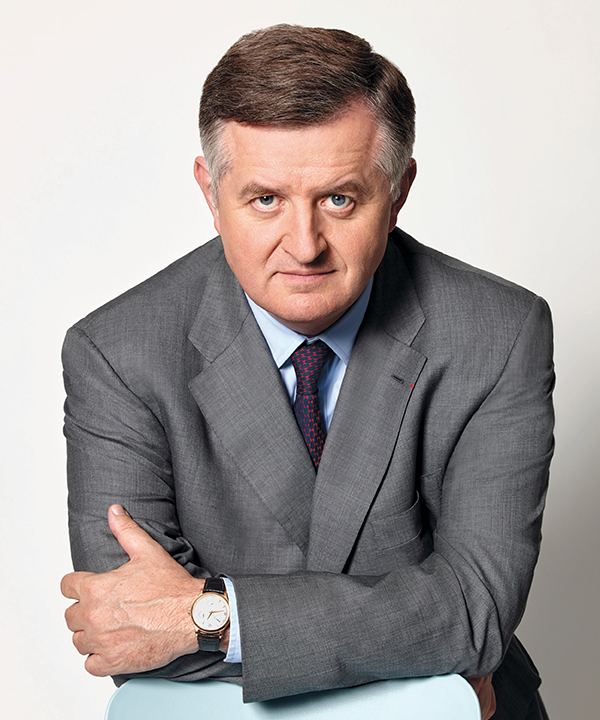Bounce back : Interview with Augustin de Romanet Chairman and Chief Executive Officer of Groupe ADP
OUR ABILITY TO BOUNCE BACK DEPENDS ON REGAINING PASSENGER TRUST AND ACCELERATING THE PACE OF OUR ENERGY TRANSITION.

Augustin de Romanet
Chairman and Chief Executive
Officer of Groupe ADP
The unprecedented crisis triggered by the Covid-19 pandemic has hit the air transport industry very hard. So how did Groupe ADP manage to get through 2020?
Augustin de Romanet: The sudden and almost complete standstill in air traffic was absolutely unprecedented in terms of its brutality, scale and duration. For the first time in 50 years, two cornerstones of the aviation industry – connectivity and growth – were being undermined. Connectivity – the ability of a country to accept passengers from all over the world – has been highly restricted over a long period as a result of quarantine requirements, border closures and other travel restrictions imposed by national governments. Growth right across the network of global routes operated by our airports in France and abroad effectively came to a halt in March, with the result that total traffic fell by 60.4% to 96.3 million passengers in 2020. In Paris, where we welcomed 108 million passengers in 2019, we saw only 33.1 million last year, which for us meant a very significant loss of revenue.
In responding to the health crisis and this sudden and severe decline in activity, our first instinct was to protect the health and safety of all airport passengers and staff. We immediately tightened and ramped up our hygienic cleaning operations, provided Perspex protection screens and signage to ensure social distancing, located alcohol-based hand sanitiser gel dispensers at regular intervals on all passenger routes, installed thermal imaging cameras in Arrivals, and set up Covid-19 screening centres in conjunction with the Cerballiance laboratory network. We’ve worked very closely with government departments to implement appropriate protocols and with the European Aviation Safety Agency to help rebuild confidence adopting the public health corridor model. So we were taking action proactively throughout the year. To give you an example, we were the driving force behind the provision that led to passengers from red-zone countries without a negative PCR test result being refused entry to France.
Our other priority was to stabilise the Group’s financial and operational situation to cope with the reduction in traffic. For many of our platforms, that meant infrastructure closures. Perhaps the most high-profile of those was Paris-Orly, which for the first time in its history was closed for several months. These closures were integral to the wide-ranging Group-wide cost savings plan introduced to reduce our costs by €668 million. We need to build on this experience so that we can continue to achieve the same level of agility in response to traffic levels going forward. Between April and July 2020, we raised €4 billion in the corporate bond markets to stabilise Group liquidity at a high level from the summer onwards. The reduction in operational activity led to the introduction of part-time working for the majority of employees in 2020. Until now, our financial and employment model has been structured to support continuous and rapid growth in air transport, but a process of social dialogue to adapt the model to the new realities of the sector has resulted in a collective severance agreement. This provides for an ongoing programme of 1,150 job losses, 700 of which will not be replaced. Unilateral measures resulting in wage reductions have also been implemented. Lastly, the targets set out in the Connect 2020 strategic plan are no longer relevant in the new context, and the investments associated with the 2016-2020 Economic Regulation Agreement (Contrat de Régulation Économique or ERC) are now so doubtful that we have reached an agreement with the French State on the possibility of exiting this multi-annual regulatory framework. The proposal for the next ERC, which was at the consultation phase prior to the health crisis, has also been waived.
